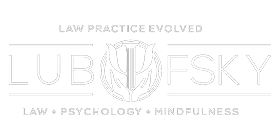The first noble truth in Buddhist philosophy is that life includes dukkha which is roughly translated from Pali by contemporary scholars as a sense of “unsatisfactoriness.” From an evolutionary standpoint, being “wired” with this sensitivity makes sense as an internal motivator for humans to venture out into their environments seeking food, shelter, procreation, etc.
One could argue that we as a species have reached an evolutionary milestone, at least within contemporary American culture, at which our basic survival needs are largely satisfied, and much of the dangers to survival that may have predominated at some earlier point in our evolution are no longer present.
Nevertheless, our programmed inclination towards “unsatisfactoriness” still exists, to some extent, within all of us. It would seem plausible that this programming continues, however, to motivate us to almost continuously scan the environment for perceived threats. In contemporary times with most true threats to our survival extinguished, perceived threats have come to primarily include internal, thought-driven notions of identity or “ego,” and ideas of how life “should” or “should not” be.
It it is within this second category of perceived threats to identity driven largely by ideas of how life needs to be that often gives rise to legal conflict. Individuals will invoke legal process to effectuate some result that they believe will, to some extent, cause life to become more in line with his or her expectations of how life should be.
The integration of mindfulness in law practice seeks to address this phenomenon at its root by working to cultivate heightened clarity on a client’s preconceived notion that may be motivating a desire to pursue litigation in the first instance. By helping clients begin to dis-identify from these conditioned notions, more creative solutions beyond adversarial litigation are far more likely to manifest. These holistic solutions are far more likely to truly help the client in potentially transformational ways, as well as move society towards a more just foundation.
to learn more about holistic law and the integration of mindfulness in law practice, contact Attorney Michael Lubofsky at (415) 508-6263, or visit http://www.mindfulaw.com.
